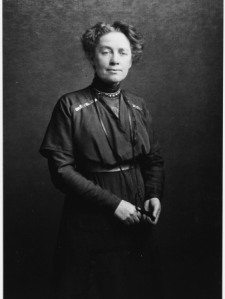 I have watched with fascination and sadness this week, as the historic division between the ‘deserving and the undeserving poor’ has again blown up, in the wake of the UK Chancellor’s linking of violence and the welfare state.
I have watched with fascination and sadness this week, as the historic division between the ‘deserving and the undeserving poor’ has again blown up, in the wake of the UK Chancellor’s linking of violence and the welfare state.
For those of you following my blogs who are not resident in the UK, a terrible trial has come to an end this week, in which two parents, who happened to be drawing state benefits, were convicted of killing their six children by setting fire to their own house. George Osborne, the Chancellor of the Exchequer, expressed his commentary on the case as: ‘Why are we [taxpayers] funding lifestyles like that?’ An almighty debate has welled up throughout the country as people react to the propriety and crassness of this statement. The emotions surrounding this debate are heightened by the fact that the UK is in the midst of major changes to the welfare system, which will push many families already living in poverty into greater poverty and distress.
 It is inevitable, and I hope in some way helpful, that I read this debate through a historic lens. As many of you know, I have been spending much of my time and energy these last months helping to bring about the 2013 Centenary Celebrations for the life of Mary Lily Walker, on whom I wrote a blog in November 2013. Miss Walker was a visionary reformer based in Dundee during the Victorian age, whose memory needs to be rekindled – not only because her work deserves that attention, but because we can learn today from the lessons she herself learned while trying to meet the needs of children and families living in a town and time filled with intense suffering. In Dundee of the 1880s, two out of every five infants died before they reached their first birthday, because of the extreme poverty, sanitary conditions, and economic pressure for mothers to work. At the same time, Broughty Ferry — a village less than 5 miles from Dundee’s city centre — was the richest district in the whole of Europe. That tiny village housed such a large collection of millionaires because they were able to draw on the labour of all those exhausted mothers down the road. It does not take much insight to see the similarity in economic conditions between Mary Lily Walker’s day and our own, 100 years on.
It is inevitable, and I hope in some way helpful, that I read this debate through a historic lens. As many of you know, I have been spending much of my time and energy these last months helping to bring about the 2013 Centenary Celebrations for the life of Mary Lily Walker, on whom I wrote a blog in November 2013. Miss Walker was a visionary reformer based in Dundee during the Victorian age, whose memory needs to be rekindled – not only because her work deserves that attention, but because we can learn today from the lessons she herself learned while trying to meet the needs of children and families living in a town and time filled with intense suffering. In Dundee of the 1880s, two out of every five infants died before they reached their first birthday, because of the extreme poverty, sanitary conditions, and economic pressure for mothers to work. At the same time, Broughty Ferry — a village less than 5 miles from Dundee’s city centre — was the richest district in the whole of Europe. That tiny village housed such a large collection of millionaires because they were able to draw on the labour of all those exhausted mothers down the road. It does not take much insight to see the similarity in economic conditions between Mary Lily Walker’s day and our own, 100 years on.
The standard response of Victorian society was to blame the parents for these conditions. They were the authors of their own misery: they drank too much, they spent their money frivolously, they didn’t keep sufficient control of their children. Why give such undeserving wretches financial support; how dare they be so presumptuous as to ask? It does not take much insight to see the similarity in George Osborne’s response today and Mary Lily Walker’s decriers, 100 years ago.
For the solution posed by Mary Lily Walker and other reformers of the time was radical. They turned the perceived problem on its head. They said that drunkenness was a result of conditions, an understandable response to living in misery. They said that if we better understood people’s misery, if we took time to listen to the stories of their lives, then we would better understand the problems that arose from that life, and then we would be better placed to solve those problems. This is the heart of the issue: we have a practical problem on our hands, not a moral one. Do we want to find lasting solutions to society’s problems, or do we want to spend our time and energy debating moral issues of judgement?
Mary Lily Walker and her colleagues were saying that blame does not offer a solution. Blame does not solve societal problems; it only solves emotional problems. It allows one person (or one group of people) to feel better about themselves, at the expense of the ‘other’. One party is right; the other is wrong. One party is deserving; the other is undeserving. Mary Lily Walker understood that practical solutions are not achieved when we focus on who is to blame. Moral debate typically distracts us from being effective. She understood that solutions are more likely to be achieved when we focus on how to lift ourselves and our neighbours out of misery. In essence, she understood that the solution lies in laying down joy, not laying down blame.
I have been told that sounds soft and frilly and weak. “Joy isn’t the issue, Suzanne – achieving a strong economic base is!” My reply is that unless the strong economic base brings joy to its population, there is little point in having one. I am fascinated in our resistance to the idea that joy is a valuable economic framework, and that poverty not ultimately about ‘punishability’. In 1926, The Glasgow Herald covered a retiral lunch for Mary Muirhead Patterson — one of Mary Lily Walker’s closest colleagues, one of the first female Factory Inspectors in the UK, and a woman given national awards for her efforts – in which the punchline of the speeches was that they [we] were on the brink of discovering that poverty, like poor sanitation, need not be an inevitable fact of life for all modern societies.
Poverty is not inevitable? Feckless behaviour is not automatically condemnable? Taking care of children will strengthen the economic conditions of the country? These are the outlandish ideas that the story of Mary Lily Walker helps us to explore. Her story is one that can help us to see our own Early Years story through new eyes – eyes that are simultaneously smarter, more compassionate, more creative, and more effective.
I am energised by the fact that this is a story the new Pope is also telling, and that he is creating entertained, askance debate when he reportedly says to his clergy “Live with the smell of sheep”. He means of course: “Go live with the people. Hear their stories. Stand beside them in their misery. Do this so that we can salve and solve that misery.” I am energized by the fact that neuroscience is helping us to see that our capacity to tolerate and share another person’s misery is a physiological capacity. Empathy is one outcome of the attachment process between child and parent that ensues in the very earliest weeks and months of life. The Early Years Movement is not about children. It is about us. It is about the economy, about poverty, about misery and joy.
In Dundee this spring and summer, a whole range of events are being held that tell the story of Mary Lily Walker –- walking tours, charity dinner and dances, photographic exhibitions, commemorative postal covers – many of them organized by enthusiastic volunteers. A biography of Mary Lily’s life will be published by Discovery Press; we will soon be taking pre-orders for the book, if you want to ensure you get in on the story early. At the Early Years Conference to be held on 29 June, the current Scottish Government Minister for Children and Young People, Aileen Campbell, MSP, will be speaking. Here is my point: Mary Lily Walker’s story, 100 years old and more, is not a historic reverie. Her story is a tool that can help us to see better our own story today.
If you want to know more about any of these events, then have a look at her website, and follow our blog or Twitter posts: www.marylilywalker.co.uk. Have a listen to the terrific interview that was carried out by Radio Scotland. Pass on the word to your friends and neighbours. And the nextime you head a media story covering changes being made to the welfare state, stay alert to the underlying discourse of ‘blame’. Ask how that discourse serves the story being told. Ask how it solves (or doesn’t) the societal problems it is illuminating. Ask why the magazine The Big Issue saw it as worthwhile carrying an article on this very topic last year , and why those living with greater levels of misery, like homelessness, can so easily see economic-emotional ties that others so often miss. Ask how using the lost lives of 6 children, who lived their whole lives in the household of a controlling man, helps us to solve the very real challenge of building a strong and joyful economy.


